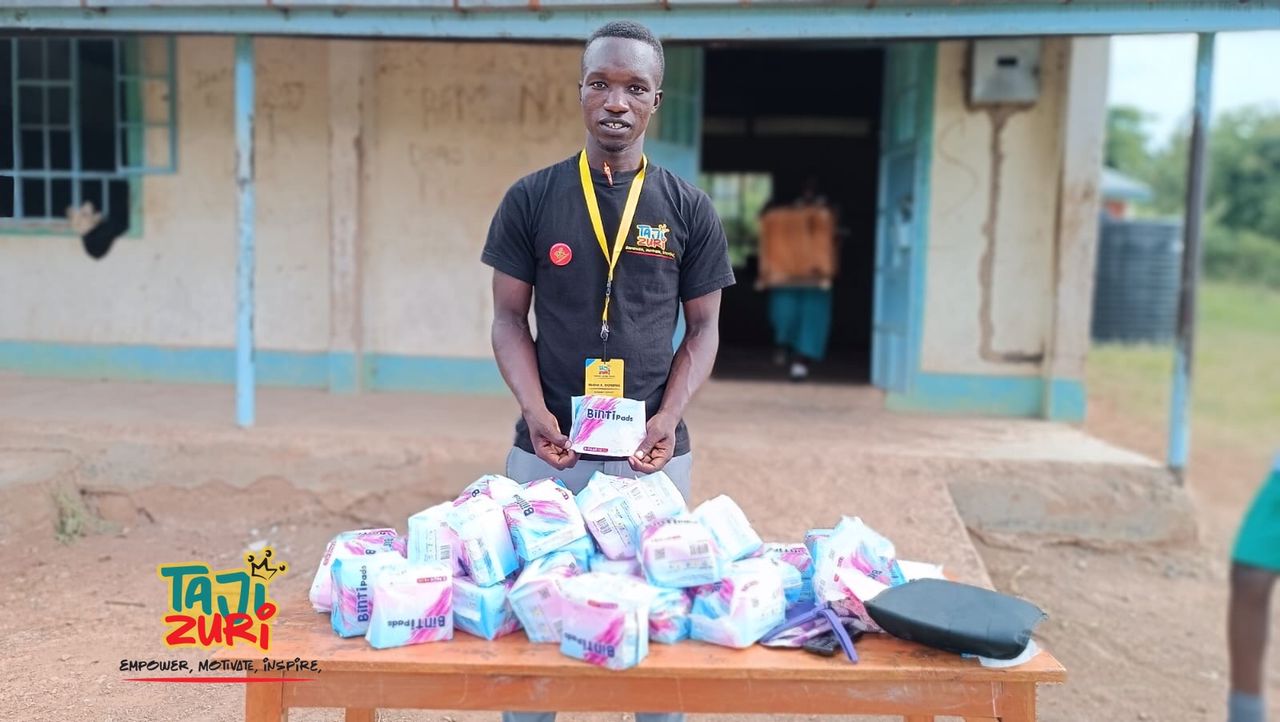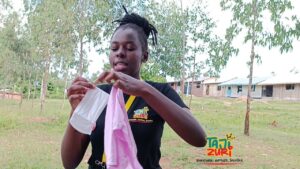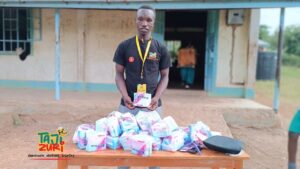Introduction
Menstrual health remains a crucial but often neglected aspect of education and well-being, particularly in
communities where taboos and misinformation persist. While much focus has been placed on equipping
girls with the knowledge and resources to manage menstruation, it is equally important to engage boys and
male teachers in these conversations. Their involvement can help break stigmas, create a supportive learning
environment, and ensure that Menstrual health is understood as a shared social responsibility rather than a
“girls’ issue.”
Perspectives on Menstrual Health Awareness
Global Perspective
Around the world, Menstrual Health Education is increasingly recognized as a critical factor in gender
equality and education retention. According to UNESCO, 1 in 10 girls in developing countries miss school
due to menstruation, which can amount to significant learning gaps over time. Progressive policies and
initiatives in countries like the Netherlands, Scotland, and New Zealand ensure free Menstrual products in
schools, demonstrating the power of inclusive approaches that involves all genders.
Regional Perspective (Africa/East Africa)
In Africa, cultural taboos and inadequate resources continue to hinder open discussions on menstruation.
Many East African countries, including Uganda and Tanzania, have started integrating Menstrual health
education into school curricula. However, boys and male teachers are often excluded from these programs,
reinforcing secrecy and stigma. Regional efforts, such as Menstrual Hygiene Day and campaigns by
organizations like the African Coalition for Menstrual Health, emphasize the need for broader inclusivity.
National Perspective (Kenya)
In Kenya, the government has implemented policies to provide free sanitary pads in schools, but challenges
such as distribution inefficiencies and limited education for boys and male teachers persist. Organizations
like Zana Africa and Girl Child Network work towards Menstrual health awareness, but male engagement
remains low. The Ministry of Education’s curriculum reforms now include reproductive health education,
offering an opportunity to normalize Menstrual discussions among all students.
County Perspective (Homabay)
Homabay County faces unique challenges in Menstrual health, with poverty and cultural beliefs limiting
access to Menstrual hygiene products. Many girls miss school due to menstruation, and the lack of male
involvement in Menstrual education sustains stigma. Engaging boys and male teachers can foster a more
supportive environment, reduce absenteeism, and encourage gender equality in education.
How Boys and Male Teachers Can Be Engaged in Menstrual Health Awareness
To effectively involve boys and male teachers in Menstrual health awareness, structured, intentional
strategies must be put in place. Here are some detailed ways to ensure their meaningful participation:
- Incorporating Menstrual Health Education into the Curriculum -Teaching Comprehensive Menstrual Health Education: Schools should integrate Menstrual health into general health education, ensuring that both boys and girls learn about it from an early age. -Age-Appropriate Learning: Younger boys can be introduced to basic concepts, while older boys can learn about the biological, emotional, and social aspects of menstruation.
- Training and Sensitization for Male Teachers –Workshops and Training Sessions: Schools and organizations should train male teachers on Menstrual health, equipping them with knowledge and confidence to address the topic. -Breaking Cultural and Personal Biases: Some male teachers may hold misconceptions about
menstruation. Sensitization workshops can help dispel myths and make them comfortable discussing
the topic. -Encouraging Open Conversations: Teachers can be trained to create an environment where
students feel safe asking questions about Menstrual health without embarrassment. - Engaging Boys in Interactive Learning Activities -Role-Playing and Storytelling: Boys can participate in scenarios where they act as supporters of Menstrual health, fostering empathy and understanding. -Group Discussions: Schools can organize mixed-gender discussions where boys and girls talk about menstruation together in a guided and respectful manner. -Question-and-Answer Sessions: Facilitators can encourage boys to ask anonymous questions about menstruation, which are then answered openly.
- Making Boys Part of the Solution -Encouraging Peer Support: Boys can be educated to stand against period-related teasing and bullying, advocating for Menstrual dignity in their schools. -Assigning Leadership Roles: Schools can establish “Menstrual Health Champions” among boys to promote awareness and distribute Menstrual products. -Encouraging Male Teachers to Take Active Roles: Male teachers can be responsible for ensuring
schools have Menstrual hygiene facilities and supporting girls in case of emergencies. - Creating Male Allies Through Community Involvement -Engaging Fathers and Male Guardians: Schools and community programs can encourage fathers to discuss Menstrual health with their daughters and support them in purchasing sanitary products. -Workshops for Men in the Community: Engaging male religious leaders, chiefs, and other influencers can help shift societal attitudes towards Menstrual health.
- Improving School Infrastructure and Policies -Ensuring Access to Sanitary Facilities: Male teachers can advocate for better hygiene facilities, including clean toilets and private changing areas for girls. -Providing Emergency Supplies: Schools should ensure male teachers understand the need to stock sanitary pads and be prepared to assist girls who may need them.
- Engaging Boys and Male Teachers in Advocacy Campaigns -Menstrual Health Awareness Days: Schools can organize events where boys and male teachers participate in campaigns, panel discussions, and fundraising for Menstrual products. -Social Media and School Posters: Schools can encourage boys to participate in awareness
campaigns by creating educational posters and videos to be shared in schools and online. - Encouraging Positive Masculinity and Supportive Attitudes -Empathy Training: Teaching boys that menstruation is natural and not something to be ashamed of fosters a culture of respect. -Breaking Stigmas in Language and Behavior: Encouraging boys and male teachers to use respectful language and discourage period-related jokes and bullying. By implementing these strategies, boys and male teachers can become active allies in Menstrual health awareness, contributing to a more inclusive and supportive environment for girls in schools
and communities.
The Role of Boys and Male Teachers in Menstrual Health Awareness
● Breaking Stigma and Taboos
When boys and male teachers understand menstruation, they can help create a more inclusive school
environment. This reduces bullying, embarrassment, and absenteeism among girls.
● Encouraging Supportive School Environments
Male teachers, as authority figures, can play a key role in advocating for menstrual-friendly school
policies, such as ensuring clean toilets, water availability, and access to sanitary products.
● Promoting Shared Responsibility
Menstrual health should not be seen as solely a women’s issue. Educating boys fosters respect and
empathy, enabling them to support their sisters, classmates, and future partners.
● Enhancing Health and Hygiene Awareness
By including Menstrual health in general health discussions, schools can cultivate a culture of
openness and hygiene, benefiting all students.
TajiZuri’s Role in Promoting Education and Menstrual Health Awareness
TajiZuri, a non-profitable organization dedicated to education, health, and community well-being, has taken
active steps to integrate Menstrual health education into its programs. Through a holistic, community-driven
approach, TajiZuri ensures that Menstrual health is addressed as part of broader educational empowerment
efforts.
Education and Training
TajiZuri conducts training sessions for both male and female teachers, equipping them with the knowledge
and confidence to discuss menstruation in an open, stigma-free manner. These sessions also involve boys,
helping them understand the importance of Menstrual health and their role in supporting their peers.
Access to Menstrual Products
To ensure girls remain in school, TajiZuri collaborates with local organizations to distribute sanitary pads in
rural areas, including Homabay. The initiative includes providing menstrual products to girls thus ensuring
they attend school during period days minimizing school absenteeism.
Interactive Learning Activities
TajiZuri incorporates innovative, engaging learning activities, such as role-playing and group discussions,
where boys and male teachers actively participate in Menstrual health education.The initiative includes
educating boys and men on why Menstrual products are essential and how they contribute to a girl’s
education. These activities demystify menstruation and foster open conversations.
Empowering Communities
Beyond schools, TajiZuri works with parents, community leaders, and caregivers, encouraging fathers and
male guardians to play a role in Menstrual health education. This ensures sustainable change beyond the
classroom.
Advocacy and Policy Influence
By engaging local education authorities, TajiZuri advocates for policies that integrate Menstrual health
education into the school curriculum, ensuring that both boys and girls receive comprehensive,
age-appropriate information.
Conclusion
Engaging boys and male teachers in Menstrual health awareness is essential for breaking stigma, fostering
inclusivity, and supporting girls’ education. In Kenya, specifically in Homabay County, where Menstrual
health challenges are prevalent, male involvement can lead to significant positive changes. Organizations
like TajiZuri play a crucial role in bridging the knowledge gap, ensuring that Menstrual health is not just a
conversation for girls, but a shared responsibility for all. By fostering understanding and support, we can
create a future where menstruation is normalized, and all students have equal opportunities to learn and
thrive.




